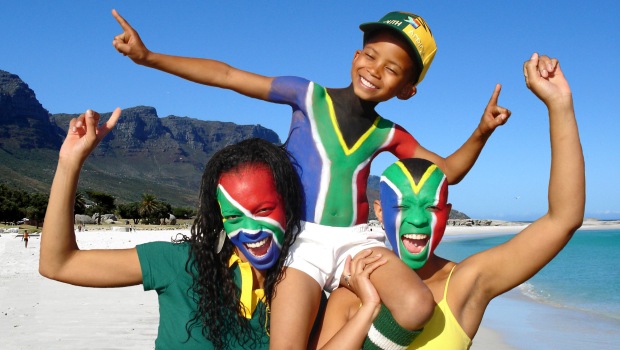Tourism is an important sector for many African economies and continues to display a tremendous potential in generating income and alleviating poverty in the region. However, most African states still face significant challenges in fully understanding the strategic role tourism plays in sustainable development. While comprehending the nature and extent to which tourism influences Africa’s development process, the UNCTAD Economic Development in Africa Report, 2017: “Tourism for transformative and inclusive growth” highlights a strong correlation between tourism and inclusive economic growth within the richly endowed continent.
Between 2011–2014 tourism generated more than 21 million jobs on average, translating into 7.1 % of all jobs in Africa. This implies that the tourism industry was supporting 1 out of every 14 jobs, according to the Economic Development in Africa Report 2017. In order to fully unlock its potential with the end goal of enabling inclusive growth, structural transformation and the attainment of the global Sustainable Development Goals, the UNCTAD suggests Africa must adopt policies that strengthen intersectoral linkages, boost intraregional tourism and promote fundamental peace.
Also read Improving Africa’s Service Economy
Tourism is critical in the promotion of economic diversification and structural transformation in Africa, with linkages between tourism and other productive sectors playing a fundamental role in this regard. African governments need to identify and develop strong linkages between tourism, agriculture, infrastructure as well as further develop market segments such as ecotourism, cultural and medical tourism. This will go a long way to spawn employment opportunities and generate new income flows. Looking at medical tourism, for instance: Tunisia, Egypt, Kenya, Mauritius, Morocco and South Africa are doing outstandingly well in this area in comparison to other African countries.
In Africa, medical tourism is on the rise. Estimates suggest that the intraregional medical tourism market segment in Africa is doing well. In 2010 more than 10,000 inbound medical tourists, mostly from Madagascar (28 %), Seychelles (15%) and Reunion Island (14 %), received medical treatment in Mauritius based on statistics provided by the Mauritius Board of Investment in 2017. On the one hand an estimated 2.5 million inbound medical tourists received treatment in South Africa between 2003–2008 (Crush et al, 2012). On the other hand, Tunisia is known to receive a large share of the continent’s inbound medical tourists. The demand by medical tourists for specialized medical care stimulates job creation for highly skilled health professionals who provide such services and the same time trigger investments in the educational sector.
Envisaging the integration of local suppliers, producers and enterprises into the tourism value chain, will go a long way to horizontally spread generated benefits and guarantee that local communities can reap the benefits from incomes earned. In other words, encourage local funding and establish partnerships with the private sector that address fundamental challenges encountered by local suppliers. This equates the level of competitiveness with foreign suppliers. In South Africa for example, limited private–public partnerships are being initiated in order to address the problem of shortage of doctors and equally meet rising levels of student demand (Econex, 2015). Also, medical tourism sparks the development of and subsequent investments in Hotel infrastructure, road infrastructure or better still health-care infrastructure. Mauritius and more recently, Ghana and Nigeria, have benefited from the development of hospital infrastructure by the Apollo Hospitals Group in India (Economic Development in Africa Report, 2017)
Find out about Africa’s Market: The Search For Skilled Labour Is On The Rise
More so, tourism impacts inclusive growth and can play an important part in the global fight to reduce poverty and achieve the Sustainable Development Goals. By creating employment opportunities among vulnerable groups such as the poor, women and youths, the paramount development goal of inclusive growth would be realized. Women make up half of tourism employees and contribute significantly to sectors that directly link to tourism, such as agriculture. Many African women tend to engage in the tourism sector as business owners and employers, with 30.5% of employers being female compared with 20.8% overall (UN Women, 2015). Both direct or indirect sources of income contribute immensely to sustainable livelihoods within this vulnerable group. Generally, tourism employment is presumed to empower women to encourage future growth as well as benefit from the sector. The employment challenge for youths in Africa equally comes into play and must be addressed tactfully. In 2060 there will be 300 million more young people in Africa according to the Department of Economic and Social Affairs, 2015. These young people must be adequately trained and equipped for the skills demanded by the sector in recent time and most especially in the future. By so doing they can be easily absorbed into the sector’s labor market; contribute to a stronger and more inclusive growth within the economy in their respective countries.
In addition, intraregional and continental tourism in Africa requires further support. Extra efforts guaranteeing free movement of persons, easy currency convertibility and the liberalization of air transport services are crucial to fostering the tourism sector and enabling sustainable development. This would facilitate greater access to tourism destinations and boost the competitiveness of destinations. Research shows that domestic tourism spending in South Africa per trip is about half the amount generated by an international tourist in terms of travel expenditure, whereas in Egypt the gap has narrowed to about 70 % according to UNWTO, 2014 and World Travel and Tourism Council, 2014. In this regard, the Economic Development in Africa Report 2017 calls for comprehensive planning for intraregional and continental tourism by regional economic communities and countries.
Furthermore, peace is a fundamental necessity to the success of every development process or effort. UNCTAD postulates that “peace is essential for tourism, and the development of tourism can foster peace”. Its 2017 report further specifies that the effect of peace on tourism is much greater in magnitude than the impact of tourism on peace. African countries with tourism potential are thereby urged to implement policies that will further contribute to both peace and development in the country as a whole, as well as enforce strategically defined policies that strengthen the tourism sector.
Synergic economic and political action is therefore key to increasing awareness on the significance of tourism to sustainable development: creating a business-friendly environment for all stakeholders within the sector, planning and realizing the utmost goal of transformative and inclusive growth in Africa.





